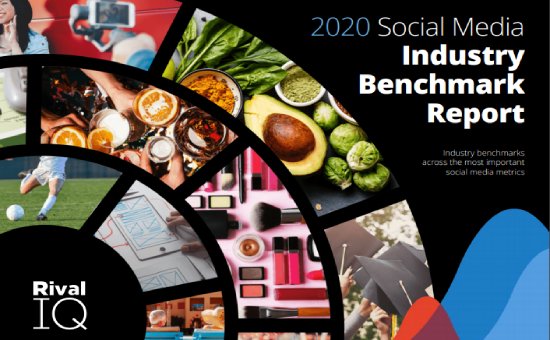B2B Content Marketing Benchmarks, Budgets, and Trends: Outlook for 2024 | Content Marketing Institute
Artificial Intelligence |
AI: 3 out of 4 B2B marketers use generative tools
We inquired about the application of generative AI in content and marketing, finding a significant trend: 72% of participants engage in experiments with generative AI tools.
However, the absence of established standards presents challenges.
Robert comments, “Generative AI introduces a revolutionary capacity to content marketing in 2024, offering a path to enhance the efficiency and effectiveness of our content processes. Nevertheless, its potential remains untapped without clear standards to gauge its impact. Without these benchmarks, it simply becomes another uncertain technological investment.”
Currently, content marketers’ application of these tools varies: About 51% utilize generative AI for ideation. A considerable number employ these tools for headline and keyword research (45%) and for drafting content (45%). A smaller group uses AI for structuring assignments (23%), editing (20%), creating graphics (11%), and producing audio (5%) and video content (5%).

Several marketers utilize AI for tasks such as creating email subjects and content, deriving social media updates from extensive articles, and transforming detailed texts into concise versions, among other applications.
A minority of 28% indicate they do not employ generative AI tools.
The majority haven’t yet invested in paid generative AI tools
Of the users of generative AI tools, a significant 91% opt for no-cost options (like ChatGPT). Thirty-eight percent integrate these tools into their content creation or management systems, while 27% subscribe to paid services like Writer and Jasper.
Lack of regulation in AI-driven content creation
When questioned about whether their organizations have established rules for the use of generative AI tools, 31% responded affirmatively, 61% negatively, and 8% were uncertain.

Ann Handley of MarketingProfs shares her view: “Finding out that 61% lack guidelines might seem insane, but is it really surprising? No, it’s not. Many of us are just beginning to explore generative AI, presenting a prime chance to lead from your position,” she comments.
“Start the discussion within your organization. Make it clear to your peers and leaders that this goes beyond just a technological prospect; it’s a challenge that touches on people and operations, demanding a smart, considerate approach. You have the potential to be the AI champion your company needs,” Ann advises.
Reasons some marketers shy away from generative AI tools
Beyond the absence of usage guidelines, B2B marketers have other reservations about adopting generative AI tools. These include concerns over accuracy (36%), a lack of training (27%), and a fundamental misunderstanding of the technology (27%). Additionally, 22% worry about copyright issues, while 19% are restricted by company policies against using such tools.

Exploring the Impact of AI on SEO
Our curiosity extended to how AI’s role in search engines is altering the SEO strategies of content marketers. This is what we uncovered:
– 31% are intensifying their emphasis on understanding user intent and providing answers.
– 27% are focusing on producing more thought leadership pieces.
– 22% are crafting content that’s more conversational in nature.
– Meanwhile, 28% report they’re not engaging in any of these strategies, and 26% are uncertain about their approach.
AI prompts a reconsideration of SEO strategies, yet it isn’t the sole factor prompting this shift. Andy Crestodina, co-founder and CMO of Orbit Media Studios, remarks, “Featured snippets and people-also-ask boxes have been eroding click-through rates for some time. AI is likely to exacerbate this trend, particularly for queries seeking quick information. Those in search of fast facts often have no desire to click through to a website.
“Channel your SEO efforts into addressing comprehensive questions and queries with a commercial intent,” Andy advises. “These search terms still possess a ‘visit website’ intent and will continue to do so for the foreseeable future.”
Is an End to the AI Fascination in Sight?
A significant number of B2B marketers we surveyed anticipate that AI will remain at the forefront of content marketing trend discussions into 2024. One participant noted, “AI will keep attracting attention through 2024 until marketers recognize the commitment needed to craft prompts, refine through iterations, and verify the accuracy of results. AI can enhance your capabilities, but it shouldn’t be seen as a substitute for B2B marketing strategies.”
Team structure: How does the work get done?
Generative AI isn’t the sole factor impacting content marketing currently. We further inquired with marketers about their team structures.
In bigger organizations (with more than 100 employees), 50% reported that content requests are managed by a unified content team. Meanwhile, 23% indicated that individual departments or brands create their content, and 21% mentioned a shared content production responsibility among departments, brands, or products.

Content strategy is often intertwined with broader marketing, communication, and sales efforts. Seventy percent of respondents indicate their content strategy is part of their overall marketing and communications strategy, while 2% incorporate it into a different strategy. Eleven percent view their content strategy as independent for marketing purposes, and 6% regard it as separate for all company-produced content. A mere 9% admit to lacking a content strategy, with 2% providing other responses or expressing uncertainty.
Personnel changes lead to new dynamics within content teams, which often benefit from insightful leadership. Twenty-eight percent of B2B marketers report resignations within their teams over the past year, 20% experienced layoffs and nearly half (49%) welcomed new members adapting to their operational style.
Despite fluctuations in team composition, commitment to content understanding remains robust. A majority (54%) strongly believe, and 30% somewhat believe, that their content team’s leadership has a good grasp of their work. Only 11% express disagreement and 5% are neutral on the matter.
Furthermore, the transition to remote or hybrid working models has been relatively smooth, with just 20% finding collaboration to be a challenge under such conditions.
Dive deeper into our insights and strategies by continuing with the full report. Uncover more about how content strategy and team dynamics are evolving in today’s landscape. Click here to access the complete analysis and enhance your understanding. Don’t miss out on the opportunity to gain a comprehensive view!
The Table of Contents of “B2B Content Marketing Benchmarks, Budgets, and Trends: Outlook for 2024” Report :
- AI use
- Team structure
- Content marketing challenges
- Content types, distribution channels, and paid channels
- Social media
- Content management and operations
- Measurement and goals
- Overall success
- Budgets and spending
- Top content-related priorities for 2024
- Content marketing trends for 2024
- Action steps
- Methodology
Pricing:
- Free
Methodology
For the 14th annual content marketing survey, CMI and MarketingProfs surveyed 1,080 recipients around the globe in July 2023, representing a range of industries, functional areas, and company sizes. The survey was emailed to a sample of marketers using lists from CMI and MarketingProfs.
This article presents the findings from the 272 respondents, mostly from North America, who indicated their organization is a technology company and that they are either content marketers or work in marketing, communications, or other roles involving content.
Of this group, 84% represent B2B companies, while 13% work for B2B+B2C brands, and 3% say they work for a tech company of a different nature. Thirty-six percent work at businesses with more than 1,000 employees, 36% work at places with between 100 and 999 employees, 23% work for brands with 10 to 99 employees, and 5% work at tech companies with between one and nine employees.
Thanks to the survey participants who made this research possible and everyone who helped disseminate these findings throughout the content marketing industry.






